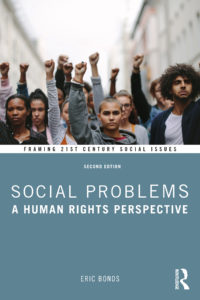
Associate Professor of Sociology Eric Bonds
Associate Professor of Sociology Eric Bonds contributed to an article titled “Can ‘Blue Zones’ be a solution to environmental injustice?” in Environmental Health News.“When we say environmental racism people think about Hurricane Katrina or Cancer Alley in Louisiana,” Bonds told EHN. “However, environmental injustice and racism is all around us.” Read more.


 Eric Bonds recently published a second edition of his textbook,
Eric Bonds recently published a second edition of his textbook,